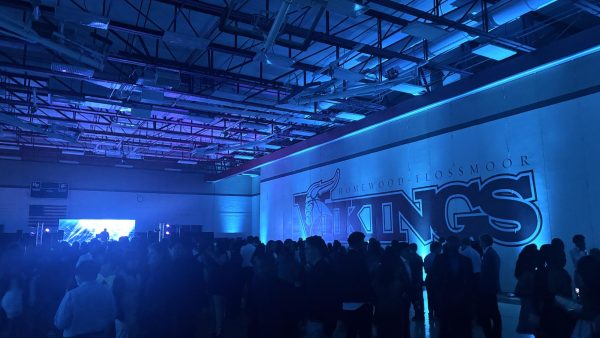Praise or no praise?
Students more religious than national average, atheism not end-all-be-all
Nearly a quarter of young Americans aged 20 to 30-years-old identify as “none” when asked to describe their religion, according to a national survey conducted by the Pew Research Center.
Humanities teacher Leah Sauvage says living in a comprehensive world could account for this trend in millennials’ lives.
“The millennial generation grew up in a more global society compared to their parents,” Sauvage said. “The more you’re exposed to other ideas, the more your ideas are challenged by others.”
Despite a growing trend in atheism/agnosticism nationwide, it seems that students at H-F are more religious than the average young adult.
The Voyager polled 91 juniors on their religious beliefs and behaviors.
Just 10 percent of those polled identify as “none” when asked to describe their religion. However, 40 percent of those who marked “none” still believe in a God or higher spirit.
Most often, students affiliate with some type of religion. Senior Laura Larocca identifies as Roman Catholic.
“I don’t do things ‘by the bible’ necessarily, but there are a lot of good values within the church,” Larocca said. “I make a lot of poor decisions and it’s nice to have someone to guide me to making better decisions.
While Larocca fits the majority, senior Shannon Dunne says she’s agnostic or rather, a “skeptic”.
“The religion I grew up on, I found a lot of things that I disagreed with, so I’m in an in-between stage,” Dunne said. “I’m skeptical because there’s no proof of a higher power. But I think that it’s stupid to believe that humans are the highest power in the whole concept of space and time.”
Senior Alexis Anderson, a member of Christian Prayer Club, says the decline of religious affiliation makes her worry for the future of our generation.
“It seems as if foundational morals and values are being greatly compromised, but I know that Jesus can save anyone,” Anderson said. “No matter how bad it might look or how low the numbers look, there is still faith.”
Contrary, Sauvage says her thoughts on the future aren’t tied to religion, but rather the rate at which people can empathize.
“I’m of the believer that you can have strong morals not dependent on a specific faith,” Sauvage said. “As long as our younger generations are being taught empathy by their teachers and parents and community, then I don’t have fear for our future generations.”




